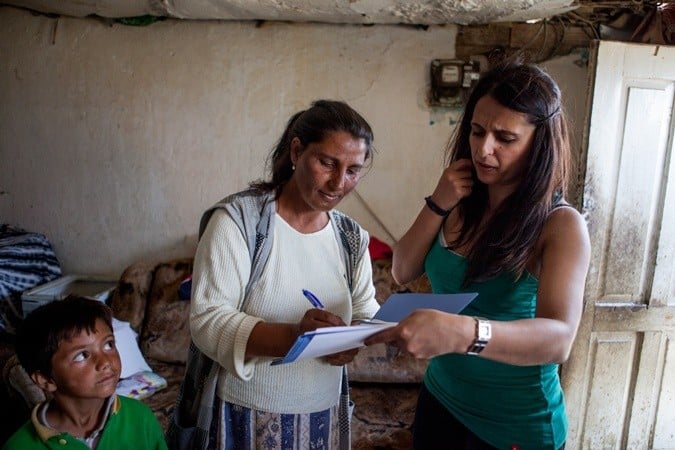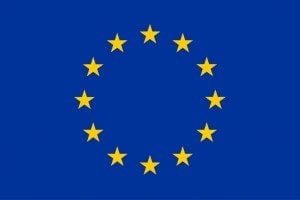
From Action to Equal Rights: civil society facility and media programme in North Macedonia
Duration: February 2017 – February 2020
Country: North Macedonia
Community: Roma
What was this programme about?
This project sought to increase the participation of Roma communities in North Macedonia in decision-making that affects their lives. Through consultation and cooperation between Roma mediators, civil society organizations (CSOs), national and local authorities and legal bodies, the programme aimed to reduce discrimination against Roma and demand recognition and implementation of their basic rights.
Why did we deliver this programme?
The Roma community is the most vulnerable ethnic minority in North Macedonia and has experienced repression and discriminatory practices for generations.
Some progress in their situation has been achieved by the Roma Action Plans which sought to empower communities and raise the voice of the Roma internationally. However high levels of discrimination continue to affect this community and contribute exclusion of the Roma in education, healthcare, employment and social security services.
An estimated 65-70% of Roma are unemployed and most of the Roma population live in homes lacking adequate infrastructure in segregated settlements where they are at a high risk of eviction. Missing ID documents, problems with registration at birth and little or no access to free legal aid have exacerbated such socio-economic issues and experiences of depravity. Roma have also become targets of hate speech and crimes and are frequently subject to maltreatment by police and authorities.
Some coordination already exists between intergovernmental organisations, national human rights institutions (NHRIs), human rights non-governmental organisations (NGOs) and Roma organisations, but generally they tend to work independently which limits the capacity to effectively assist Roma communities in the problems they face. Furthermore, organizations representing the Roma still remain largely unaware of legal remedies available in cases of discrimination. Therefore an increase in networking would greatly benefit the community in terms of creating a wider platform to spread awareness of and challenge discriminatory practices.
What were we doing?
- Providing intense face-to-face para-legal training and also coaching via Skype for 30 Roma mediators with content on minority rights, economic and social rights and participation, advocacy techniques and community consultation methods
- Carrying out fieldwork in six targeted municipalities (Berovo, Debar, Kicevo, Strip, Tetovo, Vinica) through trained mediators identifying discrimination issues and leading consultation and dialogue with community members and authorities
- Organizing at least 30 (at least 24 local and 6 national) face-to-face advocacy meetings between local authorities and Roma mediators to identify issues to lobby on, develop an advocacy plan and engage in continuous dialogue
- Setting up a legal clinic focusing on discrimination and facilitating its mobility where students with supervision from their professors (and linked up with six virtual advice centres) assist in providing legal aid and undertaking visits to minority communities thereby additionally helping to broaden their knowledge of human and minority rights
- Operating six virtual advice centres providing legal and advocacy advice through Skype led by Roma mediators who participated in capacity building training
- Providing 12 pilot projects via small grants which build on the policymaking partnership between Roma civil society groups and local/national authorities
- Conducting biannual national partnership meetings to assess and improve participatory policymaking initiatives
- Setting up an anti-discrimination network formed by anti-discrimination experts, university legal clinics, private law firms, human rights NGOs, intergovernmental and public interest organizations and relevant socio-economic actors to foster collaboration between a wide range of actors.
Who were our partners?
The programme was led by the Roma Democratic Development Association Sonce, based in Tetovo. SONCE contributes to democratic integration and effective participation of the Roma community in society through capacity building, direct support and advocacy.
Who funded this programme?
This programme was funded by the European Union.
Find out more
MRG has carried out other similar projects which seek to strengthen capacity among civil society organisations and activists working on Roma issues such as in Ukraine: Local authorities and civil society organizations together for an inclusive socio-economic development and Türkiye: Housing and Education rights for Roma.
—

This content is the sole responsibility of Minority Rights Group International and can under no circumstances be regarded as reflecting the position of the European Union.